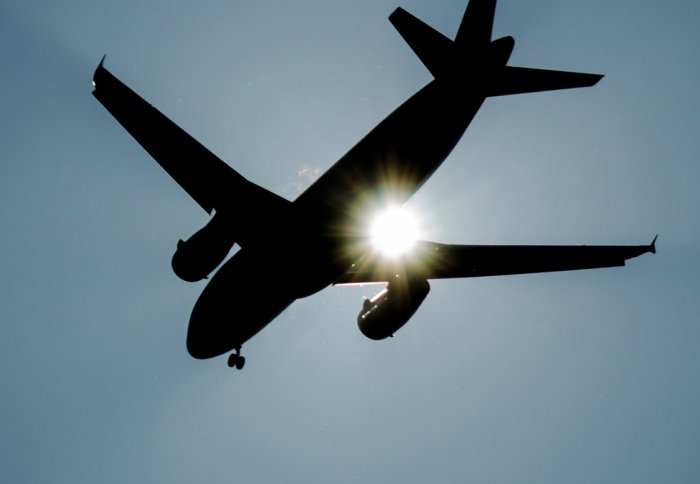Further developing Chinese aerospace industry partnership
by Colin Smith

Aeroplane
Supporting the development of the next generation of aircraft will be the focus of a new five million pound partnership at Imperial, announced today
Imperial and the Aviation Industry Corporation of China (AVIC) are establishing two research centres at the College that will assist the company in developing the next generation of advanced commercial aircraft.
AVIC have more than 480,000 employees and near 200 factories and research institutes across China. The two research centres that have been established at imperial are among only a few to be funded outside of China.
The researchers at Imperial College aim to develop new manufacturing methods that will integrate the testing of new types of advanced materials with design and manufacturing processes, which could lead to cost savings and greater innovation in aircraft design.
Professor Jeff Magee, Principal of the Faculty of Engineering, says: “This new project with AVIC really plays to Imperial’s strengths. We are leaders in aeronautical and mechanical engineering and in materials research and have a very strong track record working with the aerospace industry on ways to make flying cleaner, greener and more efficient. We hope this partnership will enable China to develop the types of high end jets and passenger aircraft that their thriving and increasingly mobile society now needs.”

Imperial researchers are working with AVIC to improve aircraft design
Work at the AVIC Centre for Structural Design and Manufacturing, based in the Department of Mechanical Engineering, will focus on developing ways to improve manufacturing methods. The researchers at the Centre are already leading the world in a range new types of industrial processes, including Creep Age Forming, which is a new way of forming components that have high strength and low residual stresses that could lead to large aircraft panels being constructed using low cost tools.
The researchers are also developing processes that enable multiple parts to be combined together and formed in one part, which reduces the need for joining. By reducing the number of components it could reduce costs and make aircraft design stronger and more durable.
The researchers at the AVIC Centre for Materials Characterisation and Modelling, which is based in the Departments of Mechanical Engineering and Materials at Imperial, will investigate new types of advanced materials for use in aircraft manufacture. These include high strength aluminium and a durable transparent material.
This initiative supports the College’s Faculty of Engineering in enhancing multi-disciplinary manufacturing research. In a related endeavour, the College has recently launched the Manufacturing Futures Lab, which aims to bring together experts in future manufacturing technologies and underpinning science with a view to enabling Imperial to develop a more coherent and strategic programme in manufacturing.
Article text (excluding photos or graphics) © Imperial College London.
Photos and graphics subject to third party copyright used with permission or © Imperial College London.
Reporter
Colin Smith
Communications and Public Affairs